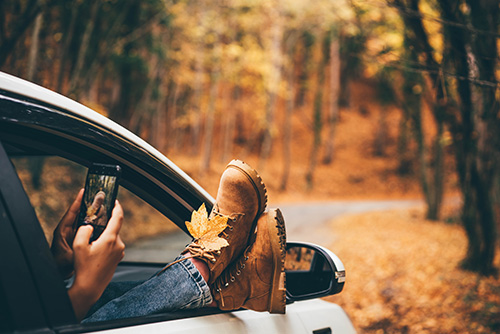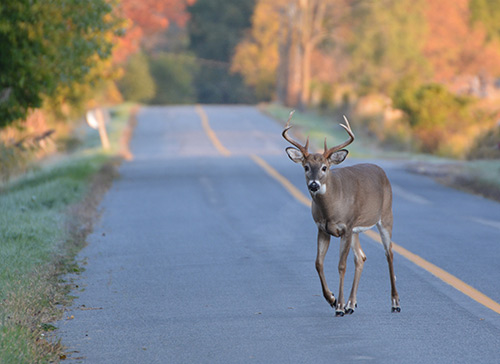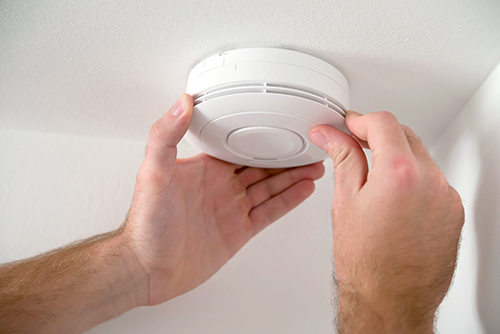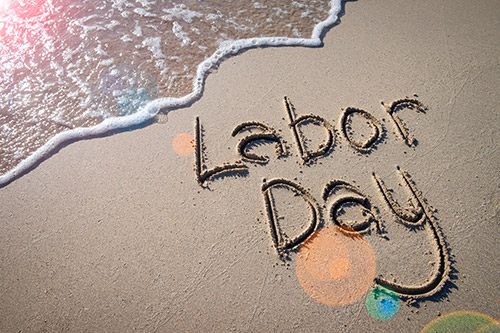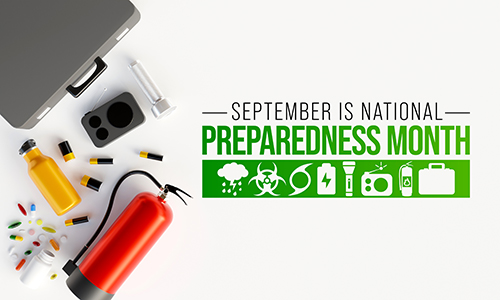
Neighborhood safety is not just about feeling safe—it can also save you money and hassle. The average cost of a burglary is nearly $3,000. And burglars are likely to strike again in areas they hit once, so you have a lot to gain (and potential money to save) from creating solidarity with your neighbors.1
Neighborhood safety is a team effort, but it starts with you. What can you do to make your neighborhood a safer place? We have some simple tips here.
Make friends with neighbors
Familiarizing yourself with neighbors can be a win-win situation. Offer yourself as a resource in case of emergencies or help needed on their end; some neighbors might reciprocate the offer. See if they’re comfortable sharing their needs.
Are there small children you should look out for? Do you live next to an older couple that stays home but sometimes needs help? Does your neighbor have indoor pets, and should you call if you ever see the pets outside?
Planning get-togethers based on physical activity is a great way to get to know neighbors. Arrange to go on walks or to have your children play together outside. Ensure all kids are a safe distance away from traffic, and teach them safe rules for playing outside together.
Organize neighborhood safety efforts
Consider giving a Neighborhood Watch group a go in your neck of the woods. If you don’t know where to start with a neighborhood association, we outlined the steps to get Neighborhood Watch started in your area.
Developing a neighborhood calling tree could help when things go amiss in the neighborhood, whether it’s a property crime or something more sinister like violent crime.
You could also encourage neighbors to disclose safety/burglary incidents on a neighborhood safety app so others know what to look out for. These apps can flag specific crime occurrences so you’re not just relying on perceived neighborhood safety assumptions.
Be cautious about the neighborhood safety app you choose since Ring’s Neighbors app has been entangled with law enforcement in ways that raise privacy concerns. Think critically about what neighborhood incidents should involve police versus when you can turn to other public safety resources.
Keep up your yard
A well-kept yard can help deter crime since trimmed foliage offers fewer places to hide. And fences can, of course, keep unwanted visitors out.
But these backyard crime prevention measures can get pretty pricey sometimes. Lean on the free tips in our article if you want to stave off property crime but landscaping/construction isn’t in your current budget.
Exercise caution when out of town
To choose targets, burglars rely most on easily scannable visual cues.2 Details like building type and signs of vacancy fall under this umbrella. We can’t overstate the importance of making it look like you’re home when you are away.
Consider swapping offers with neighbors to keep an eye on each other’s homes when out of town. Even small efforts can deter crime.
Favors might include mowing your lawn, shoveling your walks, or picking up your mail and newspapers. You could even have a neighbor park a car in your driveway occasionally while you’re gone. Make sure to return the favor if payment isn’t involved.
Use timers or smart switches to turn on your lights, or find a smart security system that will allow you to turn lamps off and on remotely.
Close windows and blinds at night
A big-screen TV is a less enticing steal if no one knows it’s there. Leaving your blinds open and lights on at night provides a free look into your house, its layout, and the habits of its occupants. And leaving windows open at night or when you’re gone is an invitation for an uninvited guest to come on in.
Improve lighting on your street
Burglars often prefer to target neighborhoods with lower residential density.3 So if your neighborhood has few houses and lots of space, take special care to ensure that space is well lit. Streetlamps are not the only way to do this.
Ask that each household turn on their porch lights in the evenings and install motion-detector lights in the backs or sides of the house so potential intruders don’t have the darkness to hide in.
Burglars also prefer homes with multiple entry points or detached properties, so ensure that all doorways and pathways are well lit.3
Install a security system
Overall, one of the surest options for crime prevention in your neighborhood is to get a home security system and use it properly. We regularly update our list of the ten best home security systems—these are your best bets.
If you see something, say something
It’s not just for airports—being diligent in your neighborhood and speaking up when you see something out of place helps everyone on the block. Criminal justice expert and SafeWise advisor Dr. Ben Stickle says neighbors working together can make a big difference, especially with crimes like package theft. He also recommends filing a police report, even though odds of recovering goods swiped off the porch are low.
If package theft is a concern in your neck of the woods, work with neighbors to keep an eye out for deliveries and suspicious snoopers or cars. If one neighbor is home most days, see if they’re willing to collect packages that would be left unattended on other porches for hours.
And if you catch a package thief on your video doorbell, share the footage with neighbors—yours may not be the only home targeted.
Improving neighborhood safety is a team effort, but it needs to start with someone. As you get to know your neighbors, discuss your concerns, and apply some of the ideas above, you’ll find that your neighborhood becomes not only a safer place to be but a more enjoyable one.
Source: safewise.com


